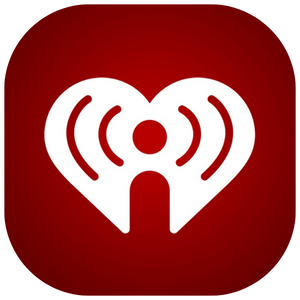Episode 31: The 3 Damaging Little Words in Grief
Good Intentions, Painful Execution
When someone you know is going through painful emotions, our urge is to do something to take the pain away.
Our intentions are good, but the execution can cause more pain than comfort.
Better Alternatives
In this episode, Grief Coach Wendy Sloneker helps us find some better alternatives based around listening from the heart, rather than reacting from the brain.
When someone you know is going through painful emotions, our urge is to do something to take the pain away.
Our intentions are good, but the execution can cause more pain than comfort.
Better Alternatives
In this episode, Grief Coach Wendy Sloneker helps us find some better alternatives based around listening from the heart, rather than reacting from the brain.
You are Invited:
Have a listen, then start on the path of healing YOUR painful emotions by scheduling a complimentary consult with Wendy at Heart Healing From Loss.
Have a listen, then start on the path of healing YOUR painful emotions by scheduling a complimentary consult with Wendy at Heart Healing From Loss.
As seen on: |
|
Full Episode Transcript
Wendy Sloneker
You are listening to the Heart Healing from Loss podcast with Wendy Sloneker. This is episode 31.
Hi, everybody. Welcome back, I want to talk today a little bit to those of you who have loved ones in your lives who are grieving or suffering heartbreak or just suffering multiple changes, navigating multiple changes, and challenges because change, as well as loss, like we're familiar with death and divorce as the big losses or big changes. And, as a reminder, there are more than 40 regular all life events that can happen and cause feelings of loss or heartbreak or grief.
So for those of you who have loved ones in your life that are noticeably navigating and challenged by these feelings, maybe it's yourself as well, I want to talk to you today about some of the words that our culture and our society has taught us. That is actually not helpful. This is in order to be more aware of our language around grief, loss and heartbreak, and how to hold and create a safer space to normalize this regular old life experience, the life experience of change the life experience of things stopping, as well as things starting conflicting feelings are part of what can create a grief feeling, or a feeling of loss.
So I want to share that like right off the bat change is part of life. And that means so are these feelings of grief and loss because of we're designed to feel these feelings, even if they're not our favorites, even if they're nowhere near our favorites, this is what we're designed to feel. This is part of the rich experience that we get to have. And hold and release, ultimately.
Okay, so today, friends, I want to talk about three potentially damaging little words. Now the three little words that people often talk about our I love you, not not damaging, what I want to talk about are the three potentially damaging little words of grief and loss. And those three words are don't feel bad. I've said these words, I've totally said these words before I was a grief coach, before I knew any better. Now that I know better, hey, I want to share with you try if you can to replace, don't feel bad with other options.
I'm going to talk about what those options are in a little bit. But I want to share about why and how these, these are not the words when someone is suffering or feeling bad or feeling isolated or navigating a change. Don't feel bad, please, these are not the words why?
Well, they are well intentioned, largely well intentioned. I was thinking about it a little bit earlier, and I have not done any research. So like, just hang with me for a second on this theory, the well intentioned place, where does this come from? I think it comes from the request to be of comfort, to take heart to do something proactively. But we put a don't in front of it as more of a directive, what not to do, when honestly, everybody's relationship with that loss or with that person that they lost is unique and different.
So grieving is highly personal, and the directive of don't feel bad, can feel instructive. It can feel authoritative, it can indicate that you're doing it wrong. This is how I think we in society and culture perceive this now. Rather than don't feel bad as a way of taking heart or being of comfort. Let's just say the more positive things anyway.
Now, linguistically, we don't say things like be of comfort or take heart, not really not really we kind of leave that for the old timey cards and notes that we might find in Regency era literature, that sort of thing. So it does come from a well intentioned place, however, don't feel bad, and then offering an alternative definitely is more of an intellectual directive rather than emotional support. It's not emotional support.
It's actually coming from our brain, oftentimes what else has happening? When we witness somebody going through something painful, we get uncomfortable, because we don't know what to do. We don't know, as supports and witnesses and loved ones to this person who care about this person. We don't know what to say, it feels kind of awkward. We don't talk about it in public, we don't know what to do. And we certainly do not know what they are going through. At best, we know what we felt like when we experienced our losses, whether they were similar or not.
So grief, highly personal, well, intention to place, yes, but it comes like that don't feel bad directive comes from the brain and not the heart. Okay, so it does come from a well intentioned plays, part of it is our own, it's our own discomfort with seeing somebody else suffer, and then also not knowing what to do.
So here's where I want to offer you a couple of options that are better and do come from a heart space rather than a brain space, actual emotional care rather than intellectual statement, or a directive. Okay, one that indicates also a couple of these that are based on your listening. So that's the other thing when you are witnessing somebody in a challenge they face and they have offered you the trust and vulnerability of sharing something about how they're feeling, or about what happened, or what they're going through.
And please, if they're asking for help, please be in this listening space where you are as present as you humanly can be. And when the impetus because it's here, this is what we're taught, when the impetus to say don't feel bad, or at least you had whatever that sentiment is that you've heard before, I want you to try these three optional alternative words on instead, there are three, three little words, that sounds hard, or that sounds upsetting. That sounds painful, that sounds challenging, or confusing, whatever is appropriate, based on your listening, based on your listening. So that's an action to take rather than a directive to offer reflect back. That sounds hard. Or my favorite one word. My favorite one word just being present phrase is how, or Oh, wow. Based on my listening, based on my listening, your heart is going to be right there to respond based on your listening.
So those three damaging little words of don't feel bad can be turned into a reflection, that sounds fill in the blank. You can use this for like great stuff to like That sounds amazing. Based on whatever is appropriate based on your listening. And then let them continue to talk or let them continue to be silent. Just having that space where you are present and listening and offer a reflection that is appropriate based on your listening based on what they're saying, based on the trust they are offering. Because it's risky. There is some research that shares that there are about 144 Different things that a griever will hear or heartbroken person will hear when they are going through something emotionally real tough, or multiple emotional things that are real tough. And about 19 of those 144 are actually useful and helpful and emotionally supportive.
So if you are surrounded with people who are going through a tough part of their path, don't feel bad is one that is let's play the game of removing that from your personal lexicon. It just gonna take a little bit of practice, you can so do this. Based on your listening, you're gonna know what to say start with that sounds challenging, that sounds excruciating. That sounds really painful. Tell me more about it and then offer them more space and time and attention and presence for them to just share. It really makes a difference and it really feels supportive.
Okay, I want to offer a A five word phrase to avoid as a bonus. What else am I not going to say? Please, let's all let's make a pact, I've got my pinky out, I'm ready to pinky swear or Pinky promise with you that these five words can now be retired from the grief lexicon. I know how you feel, I know how you feel, yep, that's five double checking. You don't know how they feel, you won't know how they feel. And it's actually not possible. Only thing we know is what we felt when we went through our losses. Just because somebody's, let's say, hypothetically, I went through a divorce earlier on in my life, it was highly personal to me, there were specific reasons for it. And somebody else's divorce or breakup from long term relationship is going to be different.
So no one except for those, you know, except for those living in my body. And that's just me, even though I'm a Gemini, that's just me, I am going to try to find out how I felt how I feel. But no one else is going to know how I feel. I'm not going to know how anybody else's divorce is going to feel because that's highly personal. That's based on very specific criteria and parameters.
And based on tenants of that relationship, that happened or didn't happen, that went or didn't go, or however it went down. I'm not gonna know, I know how you feel is not actually possible. I hear you. And this is where you can, exchange those five words for the three? Oh, this sounds challenging, the sounds really painful. I can't How about I can't imagine what you're going through. That's more words, I think that's like seven or something, I'm not going to count them. I can't imagine what you're going through. I'm available for you to just share or not share for you to talk or not talk. And this is a safe space. This is confidential. This is just between us.
That element of emotional support. And presence is really where a grieving person can feel a little bit of a relief, feel a little bit like they're being held and feel like you know, they're not doing anything socially wrong, or even personally wrong. The way that the three damaging little words that I mentioned earlier in this episode, can so being aware and being present, especially with those who are going through something, even if it's yourself, what, how do I apply that instead of I shouldn't feel bad, or I, I wish I would just get over these feelings.
Maybe this is hard. I've never been here before. I'm not exactly sure. I know what I'm doing in this moment. This is hard. Maybe those are things you can practice if you're someone going through multiple losses, or grief of any kind based on regular life, which is always changing.
I'm thinking of you let me know if this has been useful to you. And also whether or not you've experienced the three damaging little words. Or you know how the options sound when you try them on and practice them.
I'd love to hear about your own study and experience. Let me know. And thank you for joining me yet again.
Hi, it's Wendy, thank you so much for listening. If something resonated or stuck out or sort of hummed with you in this episode, and you want to either talk more about it, or have me talk more about it, let's schedule a connection call. It could be that you are ready to learn how to release emotional pain. That sounds great. It's great to do and it's great on the other side.
Regardless, you're invited. So if you think it's time for a free 30 minute connection call, I would love to have that with you. Go to Wendy at hearthealingfromloss.com to email and schedule or you can text or call 206-498-8025 and schedule it that way. I would love to talk with you and I would love to listen to YouTube.
Thank you and thanks for coming back for the next episode too.
You are listening to the Heart Healing from Loss podcast with Wendy Sloneker. This is episode 31.
Hi, everybody. Welcome back, I want to talk today a little bit to those of you who have loved ones in your lives who are grieving or suffering heartbreak or just suffering multiple changes, navigating multiple changes, and challenges because change, as well as loss, like we're familiar with death and divorce as the big losses or big changes. And, as a reminder, there are more than 40 regular all life events that can happen and cause feelings of loss or heartbreak or grief.
So for those of you who have loved ones in your life that are noticeably navigating and challenged by these feelings, maybe it's yourself as well, I want to talk to you today about some of the words that our culture and our society has taught us. That is actually not helpful. This is in order to be more aware of our language around grief, loss and heartbreak, and how to hold and create a safer space to normalize this regular old life experience, the life experience of change the life experience of things stopping, as well as things starting conflicting feelings are part of what can create a grief feeling, or a feeling of loss.
So I want to share that like right off the bat change is part of life. And that means so are these feelings of grief and loss because of we're designed to feel these feelings, even if they're not our favorites, even if they're nowhere near our favorites, this is what we're designed to feel. This is part of the rich experience that we get to have. And hold and release, ultimately.
Okay, so today, friends, I want to talk about three potentially damaging little words. Now the three little words that people often talk about our I love you, not not damaging, what I want to talk about are the three potentially damaging little words of grief and loss. And those three words are don't feel bad. I've said these words, I've totally said these words before I was a grief coach, before I knew any better. Now that I know better, hey, I want to share with you try if you can to replace, don't feel bad with other options.
I'm going to talk about what those options are in a little bit. But I want to share about why and how these, these are not the words when someone is suffering or feeling bad or feeling isolated or navigating a change. Don't feel bad, please, these are not the words why?
Well, they are well intentioned, largely well intentioned. I was thinking about it a little bit earlier, and I have not done any research. So like, just hang with me for a second on this theory, the well intentioned place, where does this come from? I think it comes from the request to be of comfort, to take heart to do something proactively. But we put a don't in front of it as more of a directive, what not to do, when honestly, everybody's relationship with that loss or with that person that they lost is unique and different.
So grieving is highly personal, and the directive of don't feel bad, can feel instructive. It can feel authoritative, it can indicate that you're doing it wrong. This is how I think we in society and culture perceive this now. Rather than don't feel bad as a way of taking heart or being of comfort. Let's just say the more positive things anyway.
Now, linguistically, we don't say things like be of comfort or take heart, not really not really we kind of leave that for the old timey cards and notes that we might find in Regency era literature, that sort of thing. So it does come from a well intentioned place, however, don't feel bad, and then offering an alternative definitely is more of an intellectual directive rather than emotional support. It's not emotional support.
It's actually coming from our brain, oftentimes what else has happening? When we witness somebody going through something painful, we get uncomfortable, because we don't know what to do. We don't know, as supports and witnesses and loved ones to this person who care about this person. We don't know what to say, it feels kind of awkward. We don't talk about it in public, we don't know what to do. And we certainly do not know what they are going through. At best, we know what we felt like when we experienced our losses, whether they were similar or not.
So grief, highly personal, well, intention to place, yes, but it comes like that don't feel bad directive comes from the brain and not the heart. Okay, so it does come from a well intentioned plays, part of it is our own, it's our own discomfort with seeing somebody else suffer, and then also not knowing what to do.
So here's where I want to offer you a couple of options that are better and do come from a heart space rather than a brain space, actual emotional care rather than intellectual statement, or a directive. Okay, one that indicates also a couple of these that are based on your listening. So that's the other thing when you are witnessing somebody in a challenge they face and they have offered you the trust and vulnerability of sharing something about how they're feeling, or about what happened, or what they're going through.
And please, if they're asking for help, please be in this listening space where you are as present as you humanly can be. And when the impetus because it's here, this is what we're taught, when the impetus to say don't feel bad, or at least you had whatever that sentiment is that you've heard before, I want you to try these three optional alternative words on instead, there are three, three little words, that sounds hard, or that sounds upsetting. That sounds painful, that sounds challenging, or confusing, whatever is appropriate, based on your listening, based on your listening. So that's an action to take rather than a directive to offer reflect back. That sounds hard. Or my favorite one word. My favorite one word just being present phrase is how, or Oh, wow. Based on my listening, based on my listening, your heart is going to be right there to respond based on your listening.
So those three damaging little words of don't feel bad can be turned into a reflection, that sounds fill in the blank. You can use this for like great stuff to like That sounds amazing. Based on whatever is appropriate based on your listening. And then let them continue to talk or let them continue to be silent. Just having that space where you are present and listening and offer a reflection that is appropriate based on your listening based on what they're saying, based on the trust they are offering. Because it's risky. There is some research that shares that there are about 144 Different things that a griever will hear or heartbroken person will hear when they are going through something emotionally real tough, or multiple emotional things that are real tough. And about 19 of those 144 are actually useful and helpful and emotionally supportive.
So if you are surrounded with people who are going through a tough part of their path, don't feel bad is one that is let's play the game of removing that from your personal lexicon. It just gonna take a little bit of practice, you can so do this. Based on your listening, you're gonna know what to say start with that sounds challenging, that sounds excruciating. That sounds really painful. Tell me more about it and then offer them more space and time and attention and presence for them to just share. It really makes a difference and it really feels supportive.
Okay, I want to offer a A five word phrase to avoid as a bonus. What else am I not going to say? Please, let's all let's make a pact, I've got my pinky out, I'm ready to pinky swear or Pinky promise with you that these five words can now be retired from the grief lexicon. I know how you feel, I know how you feel, yep, that's five double checking. You don't know how they feel, you won't know how they feel. And it's actually not possible. Only thing we know is what we felt when we went through our losses. Just because somebody's, let's say, hypothetically, I went through a divorce earlier on in my life, it was highly personal to me, there were specific reasons for it. And somebody else's divorce or breakup from long term relationship is going to be different.
So no one except for those, you know, except for those living in my body. And that's just me, even though I'm a Gemini, that's just me, I am going to try to find out how I felt how I feel. But no one else is going to know how I feel. I'm not going to know how anybody else's divorce is going to feel because that's highly personal. That's based on very specific criteria and parameters.
And based on tenants of that relationship, that happened or didn't happen, that went or didn't go, or however it went down. I'm not gonna know, I know how you feel is not actually possible. I hear you. And this is where you can, exchange those five words for the three? Oh, this sounds challenging, the sounds really painful. I can't How about I can't imagine what you're going through. That's more words, I think that's like seven or something, I'm not going to count them. I can't imagine what you're going through. I'm available for you to just share or not share for you to talk or not talk. And this is a safe space. This is confidential. This is just between us.
That element of emotional support. And presence is really where a grieving person can feel a little bit of a relief, feel a little bit like they're being held and feel like you know, they're not doing anything socially wrong, or even personally wrong. The way that the three damaging little words that I mentioned earlier in this episode, can so being aware and being present, especially with those who are going through something, even if it's yourself, what, how do I apply that instead of I shouldn't feel bad, or I, I wish I would just get over these feelings.
Maybe this is hard. I've never been here before. I'm not exactly sure. I know what I'm doing in this moment. This is hard. Maybe those are things you can practice if you're someone going through multiple losses, or grief of any kind based on regular life, which is always changing.
I'm thinking of you let me know if this has been useful to you. And also whether or not you've experienced the three damaging little words. Or you know how the options sound when you try them on and practice them.
I'd love to hear about your own study and experience. Let me know. And thank you for joining me yet again.
Hi, it's Wendy, thank you so much for listening. If something resonated or stuck out or sort of hummed with you in this episode, and you want to either talk more about it, or have me talk more about it, let's schedule a connection call. It could be that you are ready to learn how to release emotional pain. That sounds great. It's great to do and it's great on the other side.
Regardless, you're invited. So if you think it's time for a free 30 minute connection call, I would love to have that with you. Go to Wendy at hearthealingfromloss.com to email and schedule or you can text or call 206-498-8025 and schedule it that way. I would love to talk with you and I would love to listen to YouTube.
Thank you and thanks for coming back for the next episode too.





